5. Under the Cherry Moon (1986)
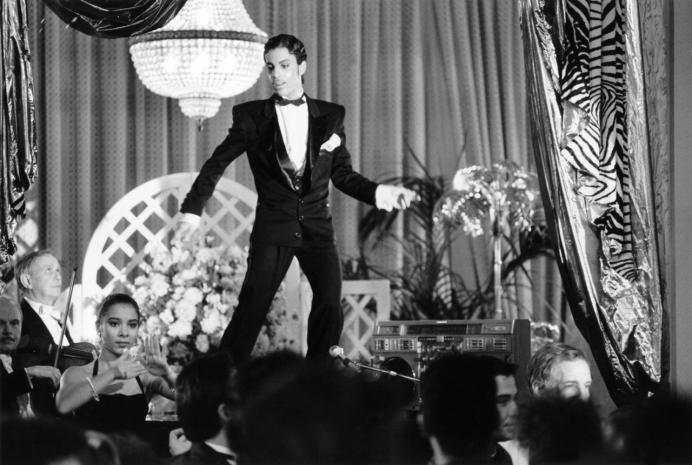
Despite having a tremendous soundtrack, Prince’s follow-up to Purple Rain was lambasted by critics as a downright laughable cinematic misfire. While Prince’s directorial debut is undoubtedly a shaky one, the black-and-white dramedy about two male prostitute brothers (one of whom, naturally, is played by Prince) trying to woo Dame Kristin Scott Thomas definitely has its moments. Of course the music is tremendous – “Kiss,” “Anotherloverholeinyohead” and “Sometimes It Snows in April” are all in there – but really, it’s the hilariously off-the-mark dialogue that makes Under the Cherry Moon such a hoot to sit through.
Give costar Jerome Benton all the credit in the world, because his performance here is absolutely exquisite cheese. “You marry a stupid girl, you have stupid kids,” he declares in perhaps the movie’s most memorable exchange. “You don’t believe me? Follow a stupid kid home and see if somebody stupid don’t answer the door.” Yeah, Shakespeare it ain’t, but it’s still worlds better than anything said in Howard the Duck or Blue City, without question.
4. Mommie Dearest (1981)
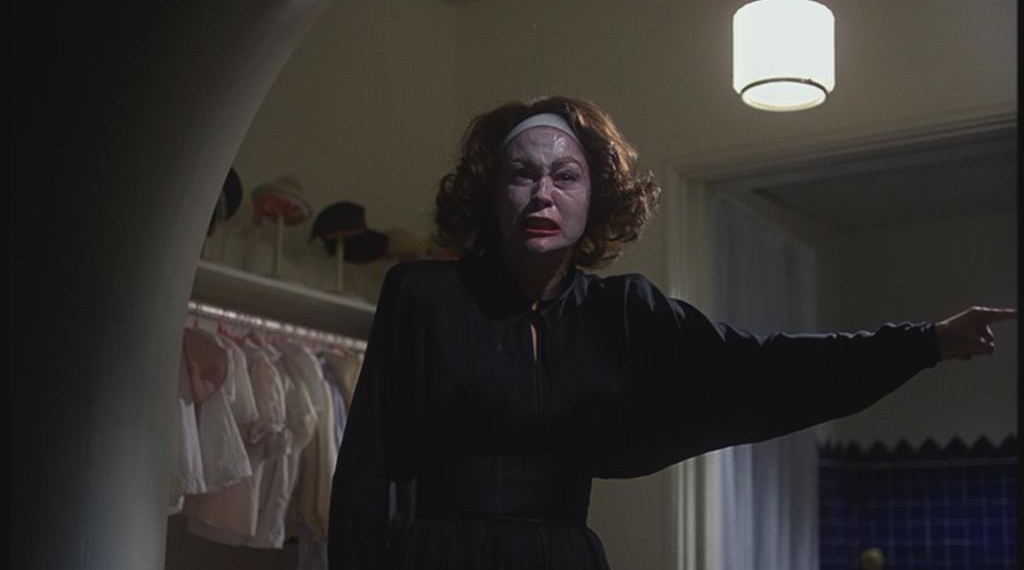
That this film was deemed the “worst” of 1981 is further proof that time is indeed the great vindicator of all things. With a 6.7 IMDB score, this is the highest rated “Worst Picture” to date, and perhaps the only Razzies winner thus far that has successfully shaken off the stigma of receiving the “accolade.”
Considering the film’s reputation today, many people are surprised Faye Dunaway didn’t get an Oscar nomination for her over-the-top, creepy-as-all-hell performance as Joan Crawford – even though critics like Roger Ebert praised her performance as “stunningly suggestive and convincing” while trashing everything else about the movie when it was initially released.
Widely regarded as one of the best camp classics of the 1980s, Mommie Dearest is certainly a film that has transcended its condemnation from the Razzies committee, as evident by the fact the American Film Institute has since included it on not one but two of its top 100 lists – one for most memorable quote, and the other for most memorable villain.
3. Freddy Got Fingered (2001)
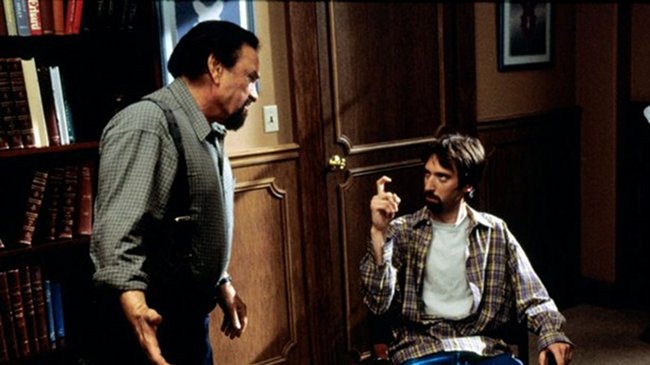
Roger Ebert may have utterly loathed it, but in some respects, Tom Green’s career-derailing Freddy Got Fingered might just be the greatest subversive comedy of the 2000s. The would-be star-making vehicle pretty much ended Green’s brief pop cultural ascendency, but apparently winning the “award” for worst movie didn’t frazzle him too much – after all, he did personally show up at the 2001 Razzies to accept an awards statuette (in case you were wondering, his speech was mostly comprised of an extended harmonica solo.)
Critically and financially maligned when first released, Freddy Got Fingered has since gone on to become a minor cult classic, with some academic-types actually celebrating it as a triumph of neo-Dadaist filmmaking. Certainly, it’s not a film for all tastes, but as long as you’ve got a penchant for surreal humor – as well as jokes about deer carcasses having their stomachs flayed open and newborn infants being swung around by their umbilical cords like birthday party noisemakers, naturally – you might just appreciate this one far more than the Golden Raspberry awards committee.
2. Indecent Proposal (1993) / Color of Night (1994)
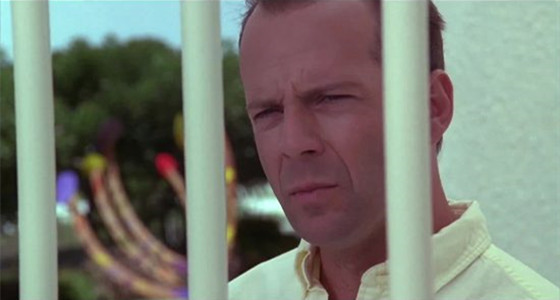
Unlike actual rubbish, trashy movies have the benefit of not stinking, and in a way their low expectations actually help them age better than most “respectable” and “serious” films. Take the back-to-back Worst Picture “winners” of ‘93 and ‘94, Indecent Proposal and Color of Night.
While both sex-heavy dramas are shameless Basic Instinct imitators, there’s no denying their sleazy, high-camp value as slightly more refined (and certainly, more expensive) cinematic trash. Indecent Proposal is a skeezy “marriage falling apart” melodrama revolving around Demi Moore, Robert Redford and Woody Harrelson’s love triangle, while Color of Night is an erotic psychological thriller with a downright incredible cast (Bruce Willis, Lance Henriksen and Brad “Chucky” Dourif!) In a way, that these movies aimed so low to begin with sorta’ exonerates them from the same scrutiny we’d place on a “serious” movie that sucks aloud.
It’s one thing to be ambitious and pretentious and overly grandiloquent and a complete mess of a movie, but for whatever reason, it’s so much easier to forgive quasi-exploitation flicks like these for pandering to the lowest common denominator. They never set out to be anything more than lurid, high-gloss sleaze, so what’s the point in decrying them for wildly succeeding at the very thing they aspired to accomplish?
1. Rambo: First Blood Part II (1985)
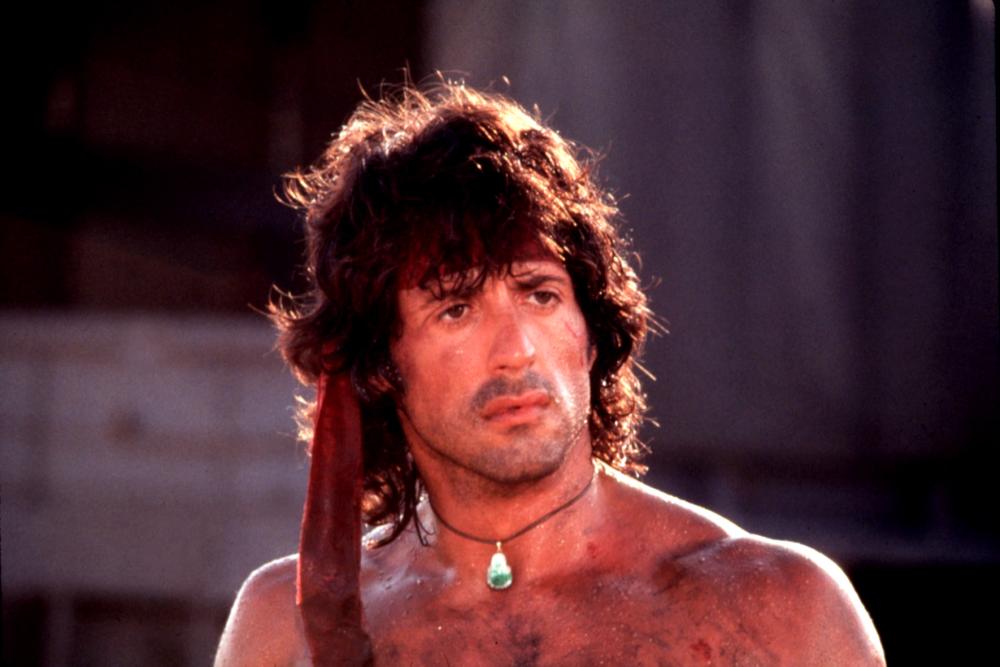
A lot of people like to talk about the Academy Awards having their fingers off the pulse of public taste, but in 1985 it was the Golden Raspberries that proved wholly ignorant of the proletariats’ filmgoing habits. Of all the films to ever “win” the Golden Razzie for worst motion picture, Rambo is probably the closest to a legitimately great movie ever bestowed with the reverse-honor.
The James Cameron-penned flick was a resounding financial success, earning $300 million off a meager $25 million budget. Sure, the critics weren’t too fond of it, but even now it’s considered a highwater mark for 1980s action movies by most genre fans.
Retroactively, the film was named one of the 25 greatest popcorn action flicks ever in 2009 by Entertainment Weekly and the American Film Institute even put it on its shortlist for its 100 Years, 100 Cheers project. And with a 6.4 IMDB score, not only is Rambo the second highest rated Razzie winner ever, the Internet hoi polloi considers it a better movie than 1933’s Cavalcade and 1931’s Cimarron … two films that won the Oscar for Best Picture!
Author Bio: James Swift (@UNJournalism) is an Atlanta-based writer and reporter whose work has been published by the Juvenile Justice Information Exchange, Youth Today, the Center for Public Integrity, the Marietta Daily Journal, AOL, Thought Catalog, The Roswell and Alpharetta Neighbor, The North Fulton Business Journal and the Journal of Blacks in Higher Education. His multimedia project “Rural America: After the Recession” received acclaim from both the Community Action Partnership and the Casey Journalism Center on Children and Families, and in 2013, he wrote the foreword for Jan Banning’s “Down and Out in the South.”